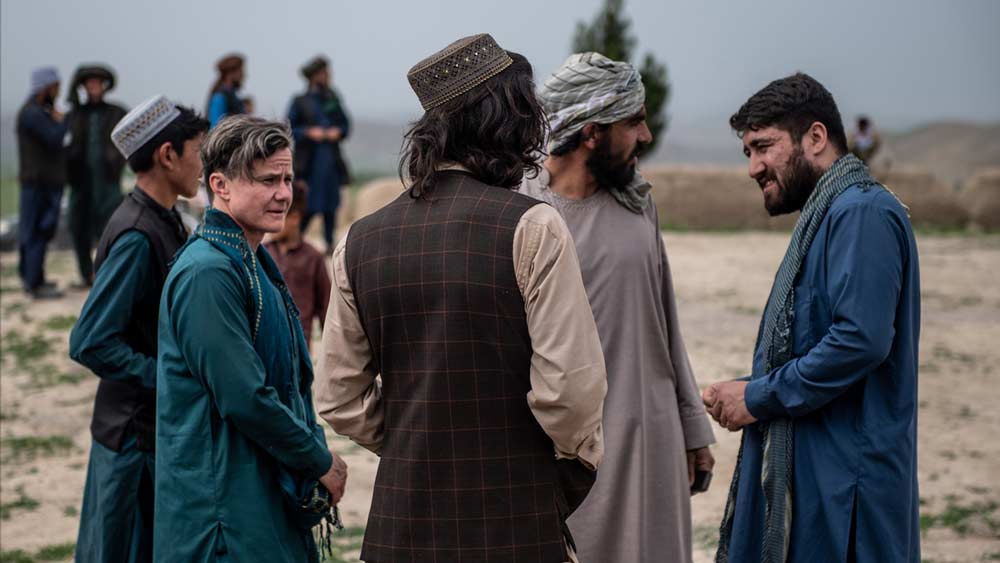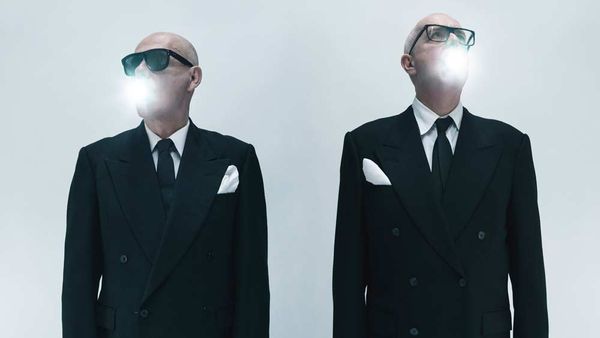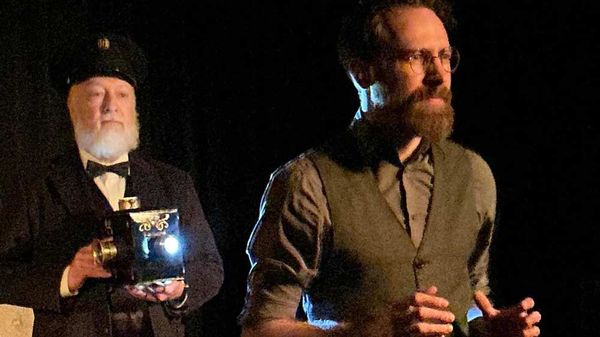
Mar 27
Review: 'Transition' Goes Behind Taliban Lines with a Trans Filmmaker
Kilian Melloy READ TIME: 3 MIN.
The smart and affecting documentary "Transition" takes us into one of the most terrifying places in the world: Afghanistan, after the Taliban takeover. The film's narrator and protagonist is a trans man.
Directors Monica Villamizar and Jordan Bryon craft a film that intelligently, profoundly probes the paradoxes that Bryon uncovers as a reporter embedded with a unit of Taliban fighters, learning about their lives and mindset even while he's continuing his gender affirmation journey.
Bryon and his videographer, an Afghani named Teddy, work on films documenting daily life in post-takeover Afghanistan for the New York Times. They see horrors, but Bryon also finds a sense of acceptance that he has never known in his native Australia. Here, he reflects, the Taliban members he deals with simply accept him as a man; the labels Bryon has had to deal with, and their stigma, simply don't exist for him here.
The flipside: If the Taliban were to discover the truth about Bryon's physiology, he – and Teddy too, most likely – would be murdered.
It's a strange ethical and conceptual place in which to dwell, and the film conveys that, showing us Bryon in his private moments of doubt ("My nerves are fucking shot," Bryon confesses to his camera in the film's first scene; later on he tearfully repeats this to his close friend, Canadian-Iranian photojournalist Kiana Heyeri) as well as his friendships with the Taliban men he and Teddy get to know. The Taliban aren't as monolithic as one might think – but all the same, there's a strict limit. Even Bryon's best friend among the Taliban fighters says that, as a non-Muslim, Bryon is an "enemy of God," adding, "If you convert to Islam right now, you'll be like a pure newborn, free of sins." He is, we learn, one of the more broad-minded of the group, someone who might have been an engineer in a free Afghanistan. But, he tells Bryon, while engineering might have afforded him material comforts, "you can't buy the afterlife."
Reflecting on this seemingly paradoxical world view, Bryon shares an anecdote with the camera in which a Talib sticks up for him by defending Bryon's not having a beard, saying, "There's more to being a man than having a beard. Manhood comes from within." Yet, "the same Talib said moments later if he heard a woman's voice coming from the kitchen when there were guests around, he'd cut her throat."
As a portrait in courage (or perhaps reckless dedication), the film is nerve-wracking, and you can sympathize with how jangled Bryon gets. At the same time, we see how anguished Teddy is at the result of untrammeled fundamentalism running roughshod over Afghanistan: "Doing this job means he has to bond with the very people who destroyed his country," Bryon muses in voiceover, as Teddy laughs and jokes with the Taliban.
Bryon's fears don't all concern his personal safety. He also worries about the ethics of keeping his status as a trans man secret – and the betrayal his friends will feel when the film is completed and released.
The film's backdrop aside, though, one of Bryon's most powerful messages is something that all governments using religion as a basis for discrimination need to hear: "For most of my life I was uncomfortable in my own skin," the filmmaker narrates early on. Later in the film, he summarizes several of the doc's ongoing themes with the words, "I just want to be seen as I feel."
"Transition" is streaming now on major platforms.
Kilian Melloy serves as EDGE Media Network's Associate Arts Editor and Staff Contributor. His professional memberships include the National Lesbian & Gay Journalists Association, the Boston Online Film Critics Association, The Gay and Lesbian Entertainment Critics Association, and the Boston Theater Critics Association's Elliot Norton Awards Committee.







